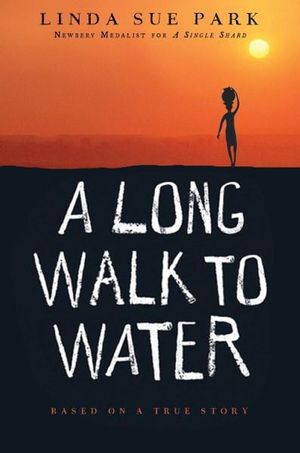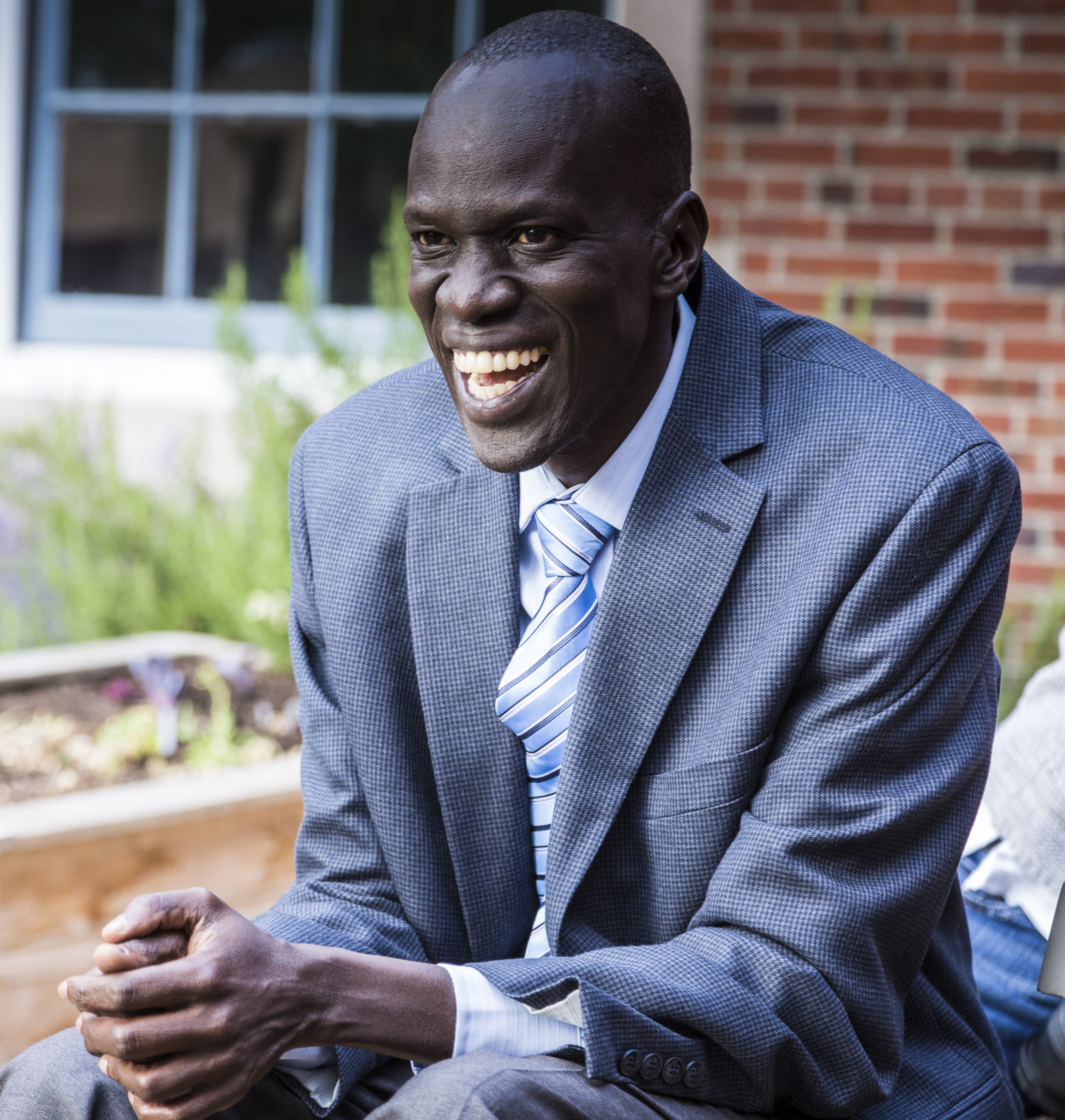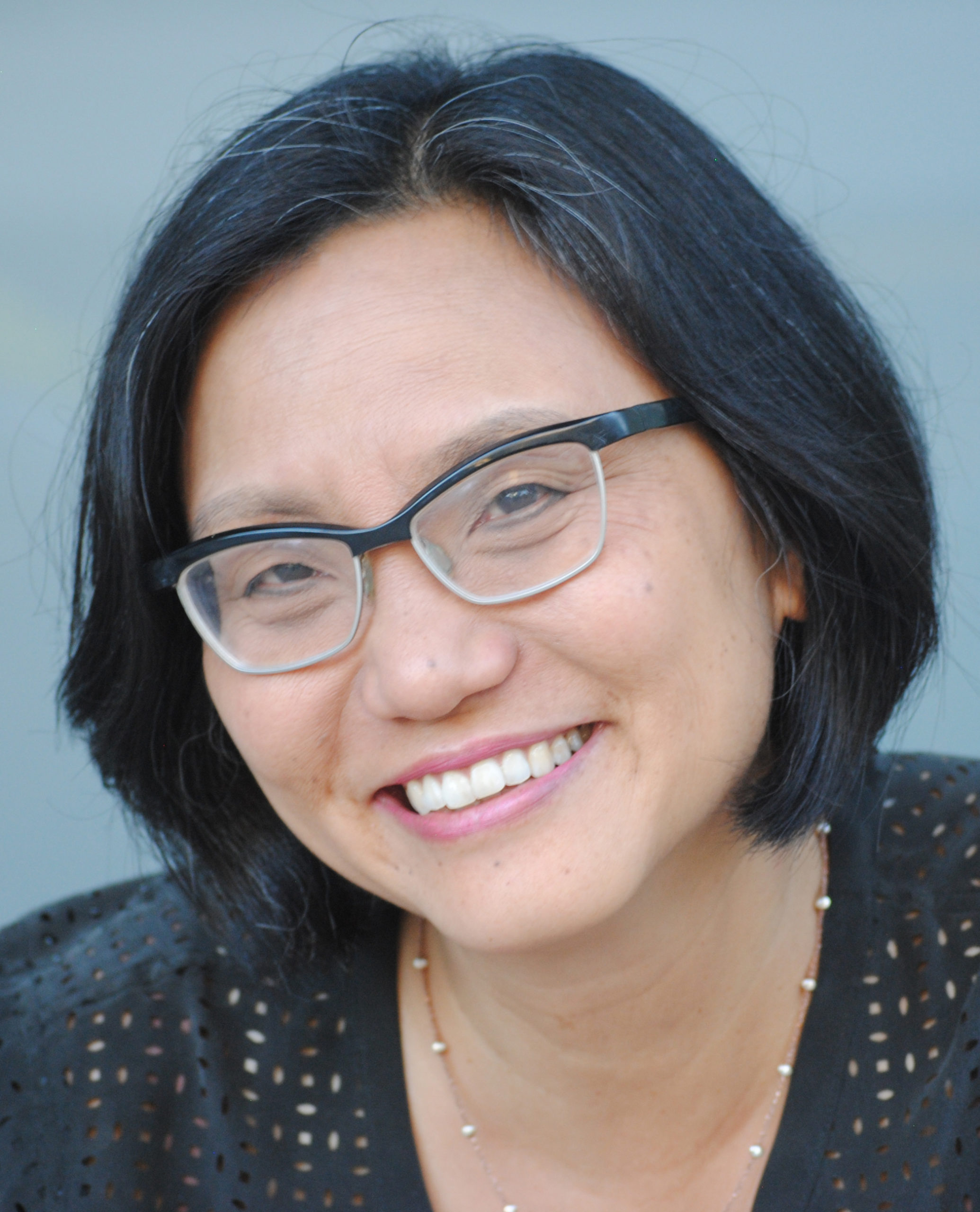


A Long Walk to Water begins as two stories, told in alternating sections, about a girl in Sudan in 2008 and a boy in Sudan in 1985. The girl, Nya, is fetching water from a pond that is two hours’ walk from her home: she makes two trips to the pond every day. The boy, Salva, becomes one of the "lost boys" of Sudan, refugees who cover the African continent on foot as they search for their families and for a safe place to stay. Enduring every hardship from loneliness to attack by armed rebels to contact with killer lions and crocodiles, Salva is a survivor, and his story goes on to intersect with Nya’s in an astonishing and moving way.
Click through the tabs below to find resources to help you with your study of A Long Walk to Water.
This interview with Linda Sue Park discusses her inspiration for the novel, some of the challenges she faced when telling such a graphic story for younger readers, and how she became a writer.
In this interview, Linda Sue Park talks about the research involved when writing this novel, and why she decided to have two different points of view in the novel.
Some of the major themes of A Long Walk to Water include:
Water:
Family/Relationships:
Leadership:
War/Refugees:
Perseverance/Hope:
The Second Sudanese Civil War was an intense 22-year conflict between the central government in Khartoum and the Sudan People’s Liberation Army (SPLA). The war started in southern Sudan but spread to other places including the Nuba mountains and the Blue Nile region. Two million people died in this conflict but the war also led to the creation of South Sudan as an independent nation in 2011. This is the war that Salva Dut is fleeing. Read through the following resources to learn more.
This article gives a very brief summary of the conflict, including how it started and how the conflict eventually came to an end.
This article provides a timeline of the main events in the history of South Sudan from 1899 to 2018.
This project from the NSW Migration Heritage Centre provides an overview of the Second Sudanese Civil War and the effects it had on the people of Sudan. It also includes links to stories from Sudanese refugees who came to Australia to escape the conflict.
This website includes a clip where Sudanese refugees talk about the impact of the civil war on their families and of creating a new life in Australia. Background information on the civil war is also included.
This detailed story map provides an insight into water scarcity in Sudan in recent years, explains why water is scarce, what problems this scarcity causes and how it can be resolved.
South Sudan, the world’s youngest country, has faced adversity and troubled times since its founding. Its separation from Sudan was accompanied by significant conflict, beginning with the advent of civil war in December 2013. The widespread conflict led to many humanitarian crises and the country did not see peace until a cease-fire was issued in August of 2018. Five years later, the effects of this conflict persist and can be seen in the nation’s water crisis. Here are six facts about the water crisis in South Sudan.
Water- and sanitation-related diseases are one of the leading causes of death for children under five. This article talks about the health issues facing the Sudanese people because of their lack of access to water.
Water for South Sudan, founded by Salva Dut, delivers life-changing, sustainable, locally-led programs that strengthen individuals, families, communities, and the nation of South Sudan, enabled by inspired donors and supporters worldwide.

Salva Dut was born in a rural village in southwestern Sudan to the Dinka tribe. At 11 years old, the Sudanese Civil War reached his village and separated Salva from his family. He joined thousands of boys, famously known as the "Lost Boys," on their journey by foot to seek safety in refugee camps in Ethiopia and Kenya. After living in refugee camps for 10 years, Salva was given the opportunity to move to the United States, where he was embraced by a family in Rochester, New York. Several years later, Salva learned that his father was still alive in Southern Sudan but was suffering with disease caused by waterborne parasites. His father’s illness inspired Salva to help both his father and his country by bringing clean water to those in need.
Read through the following resources to learn more about Salva:
In this podcast episode, Ellie Leaning talks with Salva about his work with Water for South Sudan, why he decided to focus on water as a key environmental and social issue, how water can be a conflict mitigator in the world today, and many other topics.
Salva Dut, a former refugee, has helped drill 300 boreholes in his country. This article describes his childhood and how it inspired the community work he does as an adult.
This article talks about Salva's childhood, including photos of his South Sudanese home and his adoptive family, and describes how he managed to raise money for water access in South Sudan and how important this access is for the South Sudanese people.
This interactive map shows where Salva's journey took him, broken down chapter by chapter, and includes links to a message from Silva, as well as other resources.
This novel guide includes a summary of the novel, discussion questions to help with your study of the novel, and some vocabulary words related to the novel.


Linda Sue Park is the author of many books for young readers, including the 2002 Newbery Medal winner A Single Shard and the New York Times bestseller A Long Walk to Water. Her most recent title is Prairie Lotus, a historical fiction middle-grade novel. When she’s not writing, speaking, teaching, or caregiving for her two grandchildren, she spends most of her time on equity/inclusion work for We Need Diverse Books and the Society of Children’s Books Writers and Illustrators. She is also on the advisory board of the Rabbit Hole national children’s literature museum project.
Linda Sue has served as a panelist for several awards and grants, including the Kirkus Prize, the National Book Award, the PEN Naylor grant, and the SCBWI Golden Kite Award. In her travels to promote reading and writing, she has visited more than 30 countries and 49 states. Linda Sue knows very well that she will never be able to read every great book ever written, but she keeps trying anyway.
Born: 1960, in Urbana Illinois, to parents who had immigrated from Korea.
One brother, one sister.
Grew up in Park Forest, Illinois. Attended Blackhawk Elementary, Indiana Elementary, O.W. Huth Junior High, Rich South High School
College: Stanford University, B.A. in English
Graduate degrees: Trinity College, Dublin, Ireland & Birkbeck College, Higher Diploma in Anglo-Irish Literature. University of London, M.A. in Modern British Literature.
Married. Two children. Two grandchildren.
Interests: Food & cooking, travel, movies, knitting, baseball, snorkeling.
